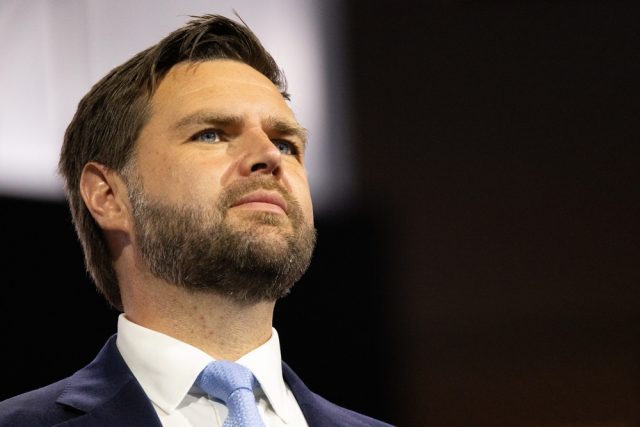
The Trump presidency may be serious about its concerns about the state of freedom of speech in Europe. The first indication that something might happen on this front was vice president JD Vance’s notorious speech at the Munich security conference in February, where he slammed a number of incidents in certain European countries where people were met with legal repercussions for political statements.
One of the targets of Vance’s criticism was Sweden, and the case the vice president referred to was the conviction of Iraqi Islam critic Salwan Najem, who stood charged with “incitement” against Muslims for burning a Quran – and verbal statements made by his since then murdered co-demonstrator Salwan Momika. In effect, Najem was forced to pay a fine for burning a Quran, without actually being tied to any inciting statements.
Vance’s characterisation of the incident was that a Christian activist was punished for participating in the demonstrations that led to his friend Salwan Momika’s murder.
As chaotic and spontaneous as the Trumpian White House appears in many aspects, it does not seem to have forgotten the alarming situation for freedom of speech in Europe. In April, the American embassy in Stockholm summoned representatives from the Swedish government to discuss the issue of Sweden prosecuting its citizens for speech, a fairly significant event that nonetheless only received limited media coverage and discussion in Sweden.
The event may indicate that JD Vance’s concern for freedom of speech in Europe, and in Sweden in particular, might become an item of American foreign policy. Similar discussions were apparently held between the Trump administration and Keir Starmer’s British government, as part of the United Kingdom’s US trade deal negotiations. There appears to have been no direct demands levied on the Swedish government during the meeting at the American embassy, however. According to official records, the American delegation only requested a rundown on how Swedish law regulates speech. Hopefully, this will not be the last meeting American officials have with the Swedish government on this topic.
It remains to see whether the White House will demand the restoration of freedom of speech in European countries as a prerequisite for the reduction of the recently established trade barriers, as was suggested by the US-UK dialogue. There are significant powers at play that wish to continue the suppression of social and government criticism, not only in major European governments like the UK, France, and Germany, but also on a high level in the EU. The problem that this poses to European democracy must not be underestimated.
The Quran burner Salwan Najem was neither the first nor the last victim of Sweden’s criticised laws against so-called incitement and hate speech. Another recent high-profile case was the conviction of a man who had shared a post on Facebook containing a cartoon satire of violent Jihadists infiltrating Europe under the guise of refugees. The picture, which landed the man a suspended sentence and a hefty fine, was originally posted by a media profile and author with a significant following.
The case against the author, who was also reported for alleged incitement, never led to a prosecution. This has raised questions about unfair application of the law – are the authorities not willing to prosecute a well-known person for “crimes” they are more than glad to bring powerless ordinary people to court over? This perceived inequality was further accentuated by the closing of a similar case against a top politician from the nationalist party the Sweden Democrats.
This indicates that the “hate speech” legislation is difficult to uphold without public and political outrage – which along with its immorality speaks volumes about how important it is that it is abolished. Perhaps aid from American conservatives is what Sweden and Europe need to finally make it happen?



 Subscribe
Subscribe